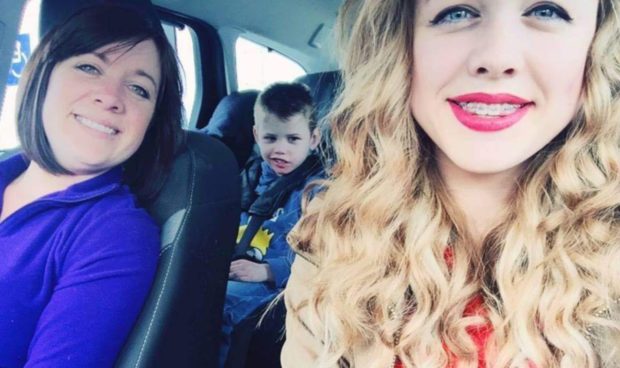
Scotland’s mental health services are over-stretched, under-resourced, and failing some of the country’s most vulnerable children and young people.
An investigation by The Sunday Post has uncovered spiralling concern about the ability of psychiatric care to cope as the pandemic inflicts more damage on the mental health of youngsters.
Health professionals, parents and leading charities today reveal harrowing accounts of young people waiting in vain for help as their mental health deteriorates catastrophically. They warn of a looming public health crisis while calling for more investment in services capable of vital early intervention.
Almost 40% of young people referred to Child and Adolescent Mental Health Services (CAMHS) are currently not seen within the target time of 18 weeks. One in ten are not seen within a year while one in five referrals are rejected.
Clinicians’ charities and affected families speak out today as, we can reveal, one of Scotland’s most respected psychiatrists working with seriously unwell young people prepares to leave his role – and Scotland – frustrated by ministers’ failure to properly resource mental health services.
Dr Justin Williams, vice-chair of the CAMHS faculty at the Royal College of Psychiatrists in Scotland, told us: “We have suffered from many years of neglect and disinterest in our services. We need to have real resources not cosmetic changes. Specialist mental health services need to be properly resourced. The government claims they’ve been increasing resources in CAMHS for years. They have not.”
He believes increased funding and long-term investment in trained psychiatrists is essential to the future of Scotland’s core specialist mental health service but reveals staff are leaving CAMHS, not joining.
He said: “We, as consultants, are continually firefighting, because we have nobody on the front line to do initial crisis management.
“Around 10% of children and adolescents have serious mental health problems, yet we dedicate less than 1% of our entire NHS workforce to CAMHS. We need more investment and commitment to train new psychiatrists.”
Sharing their stories:
Dr Williams fears the failures to properly invest in support for young people will become increasingly acute as the pandemic takes a toll on their mental health.
He said: “Most of the vulnerable young people we see have chronic mental health problems that have been affected adversely by the pandemic, including heightened anxiety and depression.
“Not going to school was a blessing for some young people who found it very difficult and stressful, but there was also the concern they would become more withdrawn at home. Young people living between two households, in poverty or in challenging home environments lost vital support networks and had limited access to health services, social workers or respite services.”
The easing of initial lockdown restrictions was a joy for some but intensified problems for others, says Dr Williams. “Many young people who are anxious about school had got comfortable outside of it and were managing well. Then, suddenly, returning to school, an environment they had always found challenging, after a six-month respite was an ordeal.”
He added: “It’s a very concerning and worrying time because you can’t underestimate the impact poor mental health in adolescence can have on the rest of your life.”
The Scottish Government recently renewed its pledge to make children and young people’s mental health a continuing priority during the pandemic. However, frontline service staff and third-sector organisations stress improvements are needed now to ensure thousands of young Scots receive vital support and avoid lifelong mental ill health.
Meanwhile, the number of children and young people referred to CAMHS has more than halved in the past three months as people chose not to seek medical help at the height of the first Covid wave, fuelling fears the pandemic will create a “perfect storm” impacting on young people’s mental health.
The latest figures from Public Health Scotland reveal the number of children and young people referred to CAMHS fell by 55% from April to June. There was also a 14% drop in young people starting treatment in the same period.
As of June 30, there were 9,319 children and young people waiting to start treatment at a CAMHS service in Scotland.
SAMH, the Scottish Association for Mental Health, has campaigned for changes to the CAMHS service, particularly to address the issue of refused referrals. In a 2018 audit of the service, commissioned by the Scottish Government, the charity laid out 29 recommendations but the charity’s chief executive, Billy Watson, fears little has changed since then.
He said: “We’re now seeing fewer young people being referred for support, at a time when it is required more than ever. Enough is enough. We have heard frequent promises that the system will improve.
We now need to see swift action to make this a reality.”
The Services:
Barnardo’s Scotland
Children and young people supported by our services frequently tell us they need someone to listen to them and not judge them, to validate their feelings and let them know they are not alone.
Too often children and young people struggling with their mental health are referred on to specialist services. But the consequences of this are that we are left with an overburdened and stretched CAMHS system having to deal with referrals for issues that do not require specialist treatment or diagnosis. CAMHS does great work, but is not the right place for many young people.
We therefore want to see consideration given to the development of an alternative service to CAMHS for children experiencing distress. This specialist resource should be dispersed across the places where children spend their time, such as schools, youth clubs, third-sector services, and GPs surgeries. With the right skills and information we can hold on to and care for our children and young people where they already are, rather than referring on to specialist services.
David Ferguson, assistant director of policy and influencing, Barnardo’s Scotland.
Papyrus
We need to prioritise education around suicide risk mitigation and include children in that conversation. Early intervention is crucial.
If we approached teaching mental health and wellbeing in schools with the same alacrity that we do with English and maths, that would lift the burden on CAMHS.
We need to resource the mental health service but, equally, we need to invest in a wider approach. Most of us, children and adults, don’t need a crisis service; we just need to be given the skills to navigate our emotional distress.
It’s important to recognise and give praise to those already intervening early; parents, teachers, social work, charities, GPs. Giving young people a space to talk and taking time to listen, that is suicide prevention.
To the Scottish Government, I say well done for having a strategy to prevent suicide. Don’t forget about it. Suicide remains the leading cause of death in children in Scotland and that is a scandal. We must prioritise it.
Ged Flynn, CEO of Papyrus, a suicide prevention charity.
Penumbra
We haven’t seen any appreciable difference in the waiting times for CAMHS and, notwithstanding the pandemic, there’s been very little action on rejected referrals.
We’ve had a task force and a programme board but we’re yet to see something on the ground that’s going to lessen the gap between young people being referred and actually getting support.
There are a lot of people who perhaps don’t need CAMHS services but they need something else in the middle which just isn’t there. We need to start thinking about meeting people’s needs as they are at that time, rather than waiting for them to escalate into a crisis. Something that acknowledges the immediate issue and offers some initial practical steps that can help.
The third sector is ideally placed to provide solution-focused practical support. A model that offers more community-based walk-ins,
self-referral or family referral would be a better option for many. CAMHS is overburdened. Taking the pressure off would provide a better balance.
Nigel Henderson, CEO, Penumbra.
Samaritans Scotland
Even before the pandemic we know that many young people were struggling to access the mental health support they needed. While the coronavirus pandemic is affecting us all in some way, we are concerned that young people may be particularly vulnerable.
Through our helpline we are regularly hearing from young people struggling with the loss of coping mechanisms that previously helped them look after their mental health, such as contact with friends or taking part in sport or hobbies, which restrictions have made more difficult.
We are also hearing frequently from young people struggling with loneliness and isolation and with worries and uncertainty about what the future holds.
It’s vital that, as we take steps to contain the Covid crisis and plan for recovery, we ensure support is available to any young person who is struggling.
Making sure all young people can access the right help at the right time is not only vital to support mental health in the here and now, it can also support prevention and early intervention by recognising signs someone is beginning to struggle.
Rachel Cackett is executive director of Samaritans Scotland.
Scottish Association for Mental Health
The past few months have been particularly difficult for children and young people.
Getting it right for young people is vital, because mental health problems that start in childhood often persist into adulthood. Stepping in early and effectively is more likely to lead to a healthy adult life instead of years of distress.
Even before the coronavirus pandemic, CAMHS was under severe strain. Now, we’re seeing fewer young people being referred for support at a time when it is required more than ever.
Those referred are not guaranteed to receive support: in the lead-up to the pandemic, one in five referrals to CAMHS was rejected. For years, we have been promised no young person will wait longer than 18 weeks for mental health support, but in the most recent period for which we have figures, not a single NHS board met that commitment.
Enough is enough. We have heard promises the system will improve: we need swift action to make this a reality. We need a new approach to children and young people’s mental health support, one where no one is rejected, everyone who is referred is seen by a professional, and support is provided quickly and effectively.
Jo Anderson is director of external affairs, SAMH.
Julie O’Donnell, operations director of education and social care charity Love Learning, believes the pandemic will leave a lasting and devastating impact on children and young people’s mental health if left without access to timely and appropriate psychological support.
“An 18-week waiting time to get support, even if that is met, is horrific,” she said.
“Imagine what that does to someone who has finally found the strength to stand up and say, ‘I need help’ only to be told all those months later that your problems are not serious enough for help. Where do you go from there?”
“We will potentially have a whole lost generation of children and young people that are missing out on vital support. We need change and we need it now because the next pandemic is children’s mental health and our mental health service needs to be prepared for that.”
CAMHS psychiatrists have found some success conducting video consultations since March and recently returned to limited face-to-face sessions, wearing PPE. Yet Dr Williams says Covid has exacerbated pre-existing challenges to providing adequate care and support.
“Covid has added stresses on to an already very stretched and underfunded system,” he said. “We’re always overwhelmed with far more demand than we can manage. When we meet young people who are experiencing so many difficulties but there are so few avenues available to us, and we’ve got so little to offer them, it’s upsetting and stressful.”
However, its critics are quick to praise CAMHS’s dedicated staff and to stress that CAMHS has always been a crisis support service. Yet it still receives referrals for children and young people that will not meet its criteria, as schools, GPs and social workers seldom have any other avenue for referrals.
With no alternative service in place, young people are either added to lengthy waiting lists or have their requests rejected. Young people and their parents end up back at square one, often after months of waiting, with little advice on where to find help.
“In the Scottish Government’s mental health strategy, they talk about getting every child the right support at the right time but we still have problems with access, particularly for children and young people,” said Nigel Henderson, chief executive of Edinburgh-based mental health charity, Penumbra.
“During the previous round of austerity, we saw eligibility criteria for CAMHS increased, so it became increasingly difficult to actually be eligible for that service.
“We need to turn that on its head and start thinking about meeting people’s needs as they are at that time, rather than waiting for them to escalate into a crisis. We need to ensure young people get the right support, at the right time, in the right place.”
He added: “By age 14, 50% of mental health problems are already beginning to show themselves in children and young people. That’s a clear indicator that we should be putting so much more money into children and young people’s mental health across the board.”
While the specialist service CAMHS has seen a drastic drop in referrals, frontline mental health charities have seen a spike in young people and their parents requiring urgent support.
Ann Marie Cocozza, co-founder of Families and Friends affected by Murder and Suicide (FAMS), said demand for her charity’s helpline and counselling service had quadrupled since the onset of the coronavirus pandemic in March. “There’s a tsunami of young people needing mental health services and the pandemic has only fuelled that,” she said.
“We are the safety net for the kids either rejected by CAMHS or waiting to get help, so they don’t deteriorate further. We plug the gaps and will see any young person in trouble. It breaks my heart to think there are young people not getting the help they need and left feeling hopeless.
“I don’t know a single person that’s been helped by us and then needed to go back to CAMHS. We often see people with mild to moderate mental health issues. If we received funding, we could continue to see these people and then the children in crisis could go to CAMHS.
“How many more reports, statistics and new initiatives do we need? It’s not even papering over the cracks. What we need is more money at the coalface.”
Like many third-sector organisations, Cocozza fears for the future of her charity after she retires next year. “We receive no funding. I do this for free, as do the 30 volunteers manning our helpline. If we don’t secure funding for someone to take my position we will need to close down. That would be devastating, not just for us, but the vulnerable young people we support.”
A more collaborative approach to ease the strain of referrals on the CAMHS service would be welcomed by third-sector organisations, said Julie O’Donnell. She added that referral letters sent by CAMHS often do not signpost specifically to a young person’s local mental health charities, which can often be better placed to offer timely support.
“We have a perfect storm of an already stretched, under-pressure service that is about to be doubly under pressure with, at this present moment in time, no new solution from the Scottish Government,” she said. “CAMHS is a specialist intervention service, which should, in theory, be dealing with the most complex of mental health cases.
“If our funding was greater, Love Learning and organisations like it could take the pressure off CAMHS. This would allow them to focus on young people who are in crisis while we can help those with milder anxiety or depression secure quick support.
“There needs to be an increase in funding but also that collaborative approach, using the community organisations already out there working with vulnerable people on the ground and have that ability to support the referrals and waiting times.”
Experts fear those who suffer most will be young people themselves, and parents forced to watch on hopelessly as their child’s mental health deteriorates without quick support.
Ged Flynn, chief executive of leading suicide prevention charity Papyrus, says early intervention and protecting mental health provisions for children and young people should be a priority. “It’s scandalous that any child should have to wait more than a few days to get the mental health help they need,” he said. “Waiting six months to a year, a reality I hear of regularly, is abominable, as is the idea you have to pretend to be at risk of suicide before you are seen.
“I take my hat off to anyone working on the frontline of children’s mental health but to those who have the power to do so, for goodness sake, prioritise the renewal of children’s mental health services. Every politician should not rest until they are confident the services the government is providing are satisfactory for our children.”
He added: “Young people’s experiences needs to be listened to, acknowledged and respected. I think the longer-term pain of this will take many years for us to unravel and make sense of it.
“The key message to children now, though, is this is a difficult time that none of us has ever experienced before. We’ll get through this together, and please know that there is always help out there for you if you need it.”
Mental Health Minister Clare Haughey said the Scottish Government was committed to ensuring mental health services for young people did not suffer because of the pandemic, with a recently published Transition and Recovery Plan detailing a series of planned improvements to Community Mental Health and Wellbeing Services for five to 24-year-olds.
She said schools were crucial in supporting young people and every secondary school would have access to a counsellor by the end of the month. She added: “We continue to invest in a range of measures to support children and young people’s mental health.”
We have suffered years of disinterest and neglect. We’ve heard a lot of words but seen little action
Dr Justin Williams, Child Psychiatrist, Aberdeen University
I’m leaving the country because I’m so frustrated with this country’s mental health care.
However, I would still like to see some serious action from the Scottish Government. Ministers must follow their word and acknowledge a major problem. It’s one that must be dealt with through proper investment.
Giving £5 million to local authorities isn’t taking the problem seriously. At the very least, I’d like to see the government taking action instead of just making “cosmetic” changes.
We just don’t have the “person power” and have suffered from many years of neglect and disinterest in the services we provide. But we need to have real resources we can depend on because specialist mental health services need to be properly resourced. We are seeing people leave rather than join.
The government claims they’ve been increasing resources in CAMHS for years. They’re not. The latest funding didn’t go to CAMHS, it went to funding local authority provision. And actually, the kids with serious mental health problems, who need specialist services, are not being properly supported. The CAMHS workforce is not far from “flatlining” because in the last five years, there’s been virtually no change.
Covid has added stresses on to an already very stretched and underfunded system, and while there has been a lot of talk from the government, there’s not been a lot of action.
CAMHS has 0.75% of the NHS workforce. It’s less than 1%. Now, 10% of children and adolescents have serious mental health problems yet we can’t give more than 0.75% of our workforce over to it.
Our job is very time and labour-intensive. We don’t need lots of expensive drugs, we need a few fairly cheap ones. We do need a lot of personnel, though, as we need a lot of “person time”.
It takes “one-to-one” work for hours at a time for one individual to help them through their difficulties. We just don’t have that.
People are always looking for a quick fix. So we end up having things like this two-tier waiting list because people are looking for quick answers. It’s just not effective or actually achieving a resolution. That’s what’s really frustrating.
I don’t understand why the government doesn’t even seem to acknowledge or appreciate how serious the problems are. They seem to think we can solve problems by having a few counsellors in schools. But if you’ve got a significant mental health problem, you do need skilled people with time to be able to address them.
You need to give them proper individual attention and time. People expect that and feel let down by the services because the services don’t give them what they are looking for.
I’m very concerned, but unfortunately, I have become sort of resigned to it now and getting very depressed.
There are so many difficulties, and so few avenues that are available to us, and we have so little to offer young people. It’s upsetting and stressful.
Samaritans can be contacted via their helpline 116 123 or by email jo@samaritans.org

Enjoy the convenience of having The Sunday Post delivered as a digital ePaper straight to your smartphone, tablet or computer.
Subscribe for only £5.49 a month and enjoy all the benefits of the printed paper as a digital replica.
Subscribe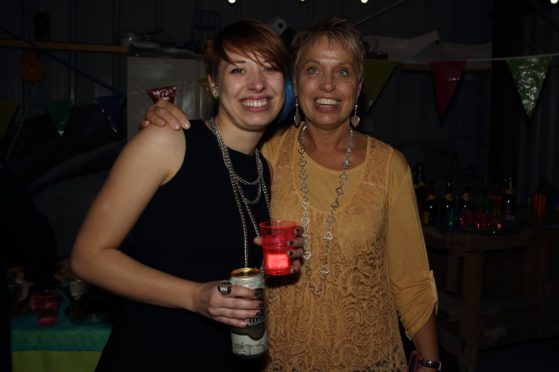
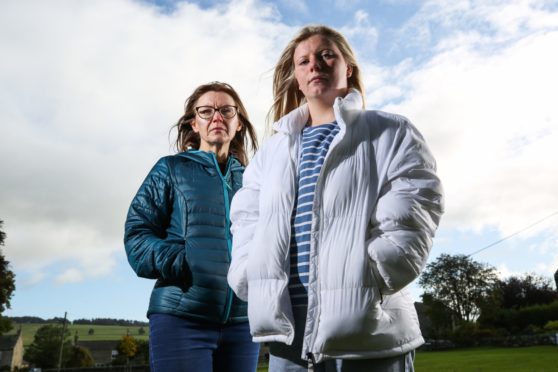
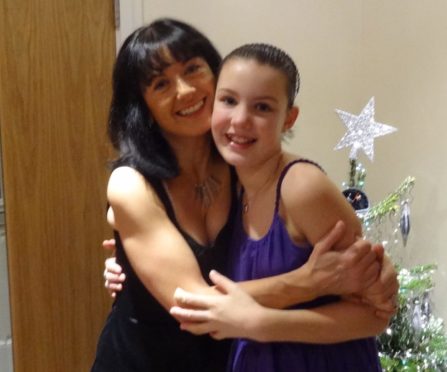
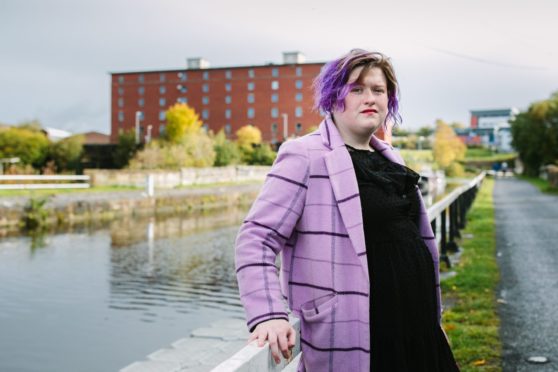
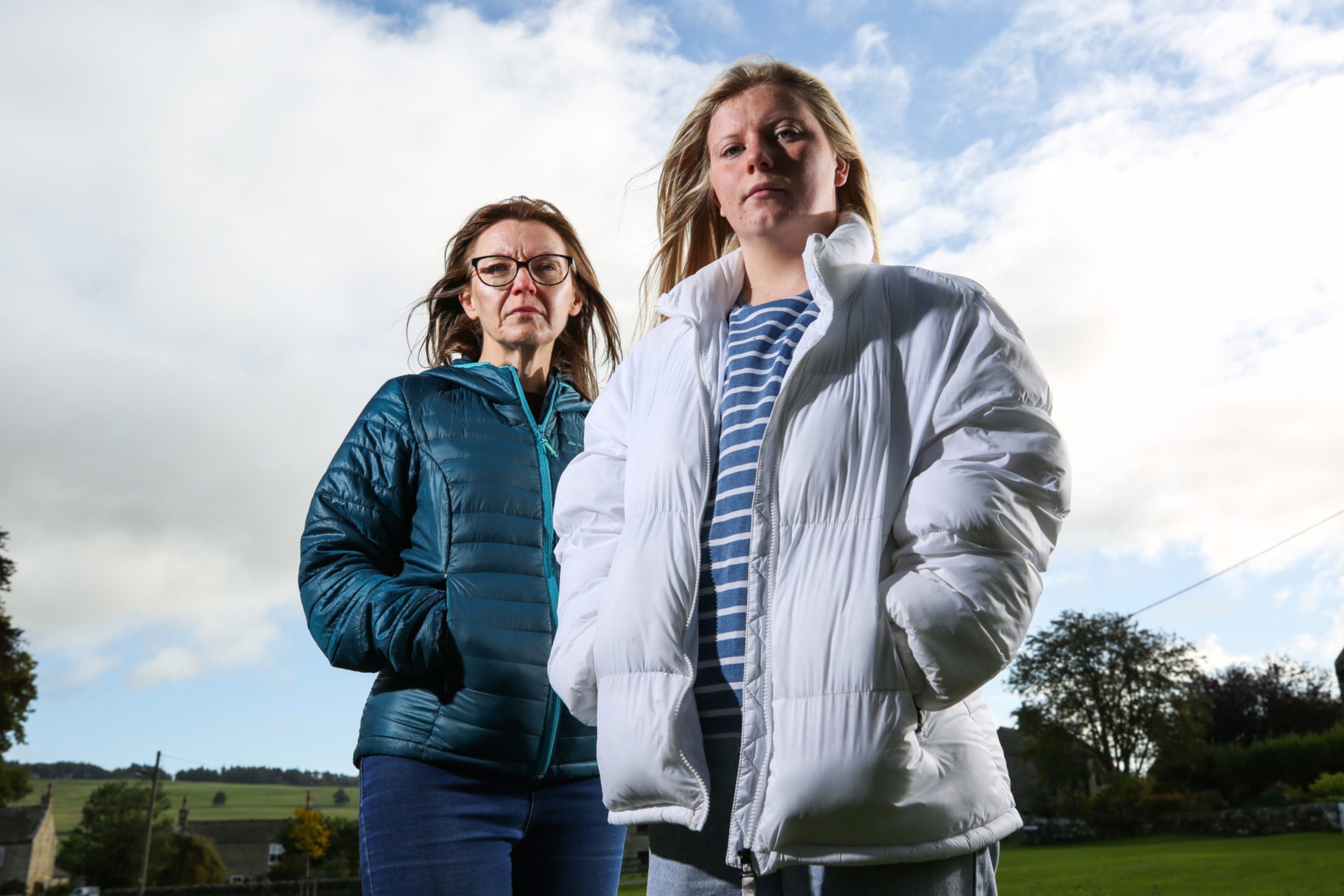 © Chris Booth
© Chris Booth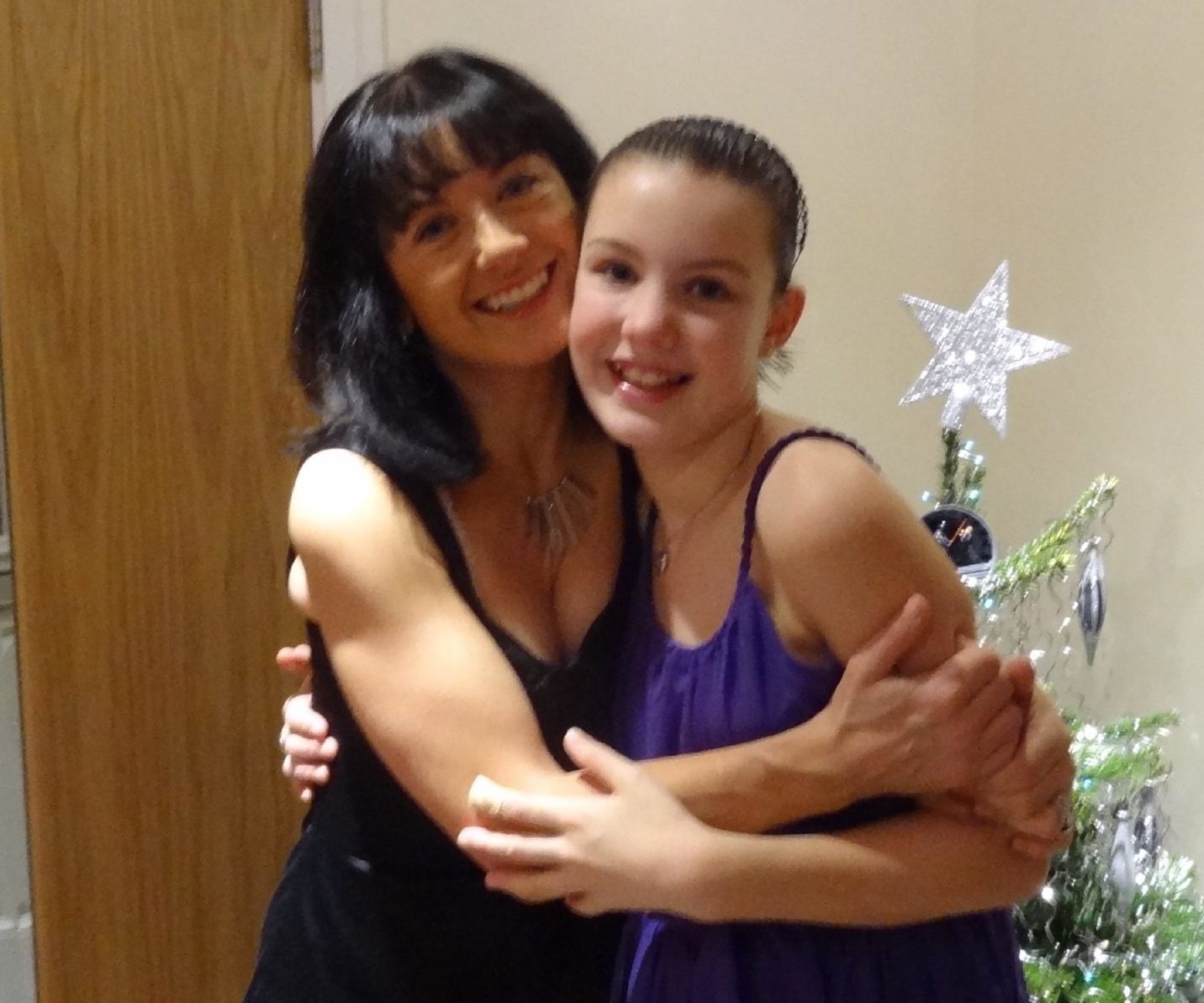 © SYSTEM
© SYSTEM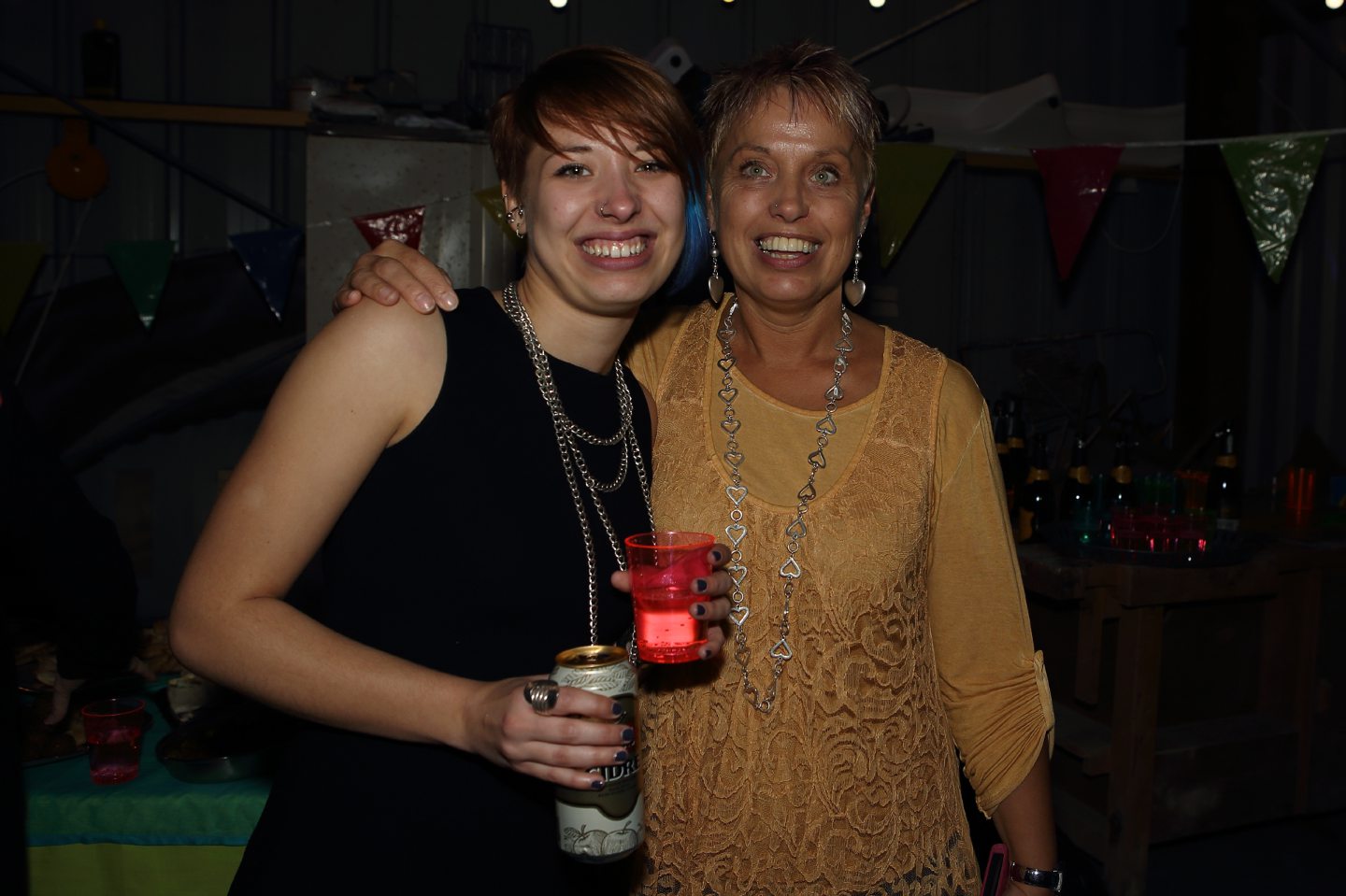 © Brian Sutherland 07876178993
© Brian Sutherland 07876178993